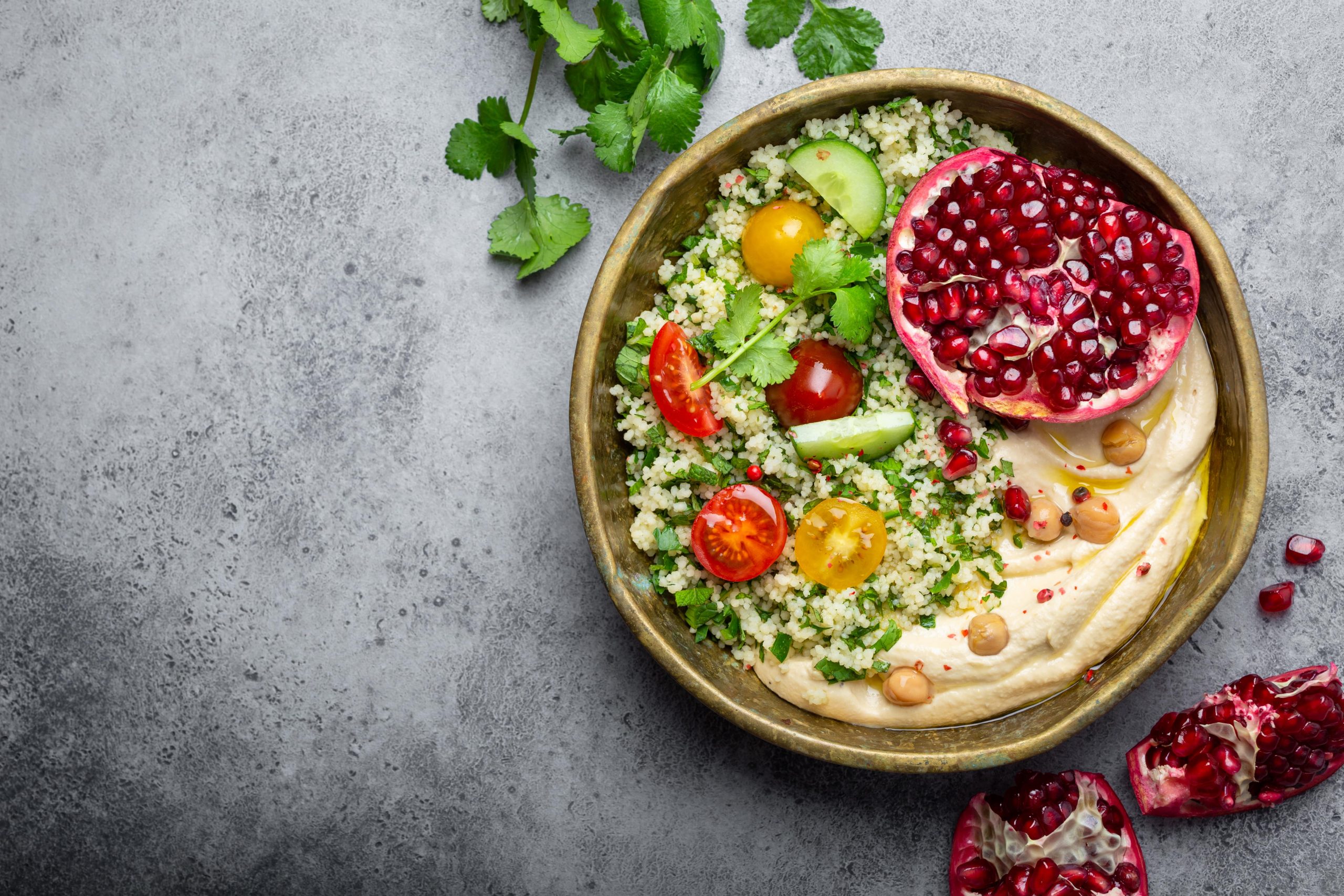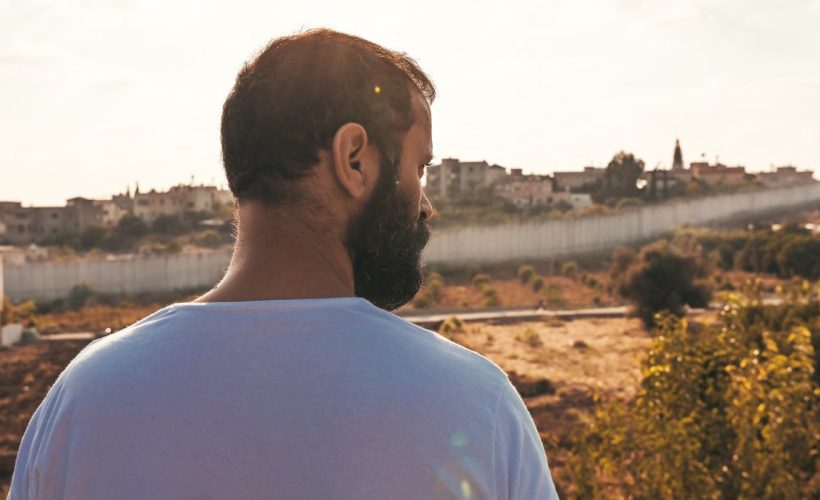Society
9.22.2020
Reconciling oriental culture and veganism, mission : possible!

From North Africa to the Middle East, meat invites itself on the tables, evoking wealth, abundance and hospitality. Linked to certain sacred rites, this food is also a great must for religious celebrations. So how can one adopt a vegan lifestyle when living in these regions? How can one affirm one’s convictions when one’s entourage swears by animal proteins? The matter seems complicated yes, but not impossible! In fact, it would seem that oriental cuisine has much more affinity with veganism than one might think.
If we go back in time, to pre-colonial times, we can see for example that Morocco relied more on dishes based on vegetables and semolina. Fedwa Bouzit, cultural journalist and author of the article “Vegan living in Morocco” for the Heinrich Böll Stiftung, says: “For a long time, everyday dishes were vegetarian. But with the advent of fast food, families, especially middle-class families, began to consume a lot of meat. Meat has become a marker of social success. This is also the opinion of Shehrazad, a Political Science student and contributor to Lallab Magazine, a feminist and anti-racist platform, who says: “In North Africa, not having a sheep during Eid is a shame.”
Both vegan and Moroccan, Fedwa Bouzit and Shehrazad explain their journey. Why they first became vegetarians and then vegan, how they took on this way of life with their entourage and which are the great figures of veganism to have inspired them.
Becoming vegan: the trigger
For the two young women, awareness came early. From the age of five, Fedwa makes the link between the living animal and the meat on her plate. I accidentally saw something I shouldn’t have seen,” she says, “the sacrifice of the Eid sheep. From then on, I refused to eat meat, which was a tragedy at home.” Shehrazad, on the other hand, begins to question herself in school, during a case study on deforestation in the Amazon. “The study showed that parts of the forest were cut down to make way for cattle farms. It struck me and I thought a lot about it, and I continued to read about it,” Shehrazad explains. A few days after turning 15, I became a vegetarian. My very traditional Moroccan family didn’t take me seriously, thinking it was a teenage fad.
Coming out and committing to it
Yet Fedwa Bouzit and Shehrazad maintain their commitments and even decide to go further: to adopt a vegan lifestyle. As she explains in her testimony “My First Vegan Ramadan” for Lallab Magazine, Shehrazad has chosen a high point in the Muslim religion to intensify her position. “Ramadan is a special time when one seeks to become a better person. It’s also the ideal time to change your habits,” she said.
So how do you reassure the family? Because very often, the family worries about the health problems that could result from this lifestyle. “My grandmother told me, ‘You are going to die Shehrazad! “joked the young woman. The misunderstanding was total, especially for my father, for whom a dish without meat is not a dish. “But veganism also raises religious criticism. “Some members of my family criticize the fact that I don’t participate in the sheep festival,” Fedwa laments. Nevertheless, for the journalist, one should not be afraid to assert oneself, but insists on the fact that communication must be effective: “we must find common references, such as the fact that Moroccan cuisine at the base is very vegan friendly. The same goes for Shehrazad, who relied on influential vegan personalities to reassure her parents.
Arab world: the great vegan figures
Who are these great figures? We can mention Simohamed Bouhakkaoui, young psychotherapist and vegan activist, founder of Vegfest Morocco and of the Youtube channel L’Veganism, but also Dalila Awada, Canadian anti-specialist of Lebanese origin, without forgetting the Egyptian Nada Elbarshoumi, founder of the blog One Arab Vegan.
Valuable references can also be found in some older texts. Shehrazad, likes to share the words of the Syrian poet Al Maari from the eleventh century: “I will not steal Nature anymore […] Come to me that you may hear a healthy truth. Don’t eat unjustly the fish that the sea has rejected, and don’t desire as food the flesh of animals that have had their throats cut…”. Contrary to popular belief, in North Africa as in the Middle East, sensitivity to the animal cause is not new!
Special thanks to Sherazad and Fedwa Bouzit for their contribution.
popular

